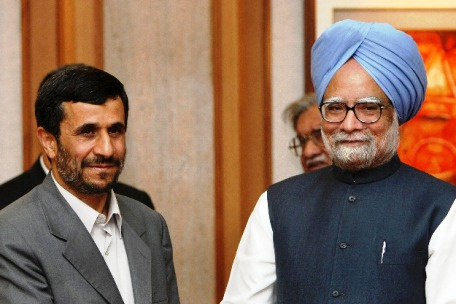India and anti-Iran International Sanctions

India-Iran relations can be divided into two pre-Islamic Revolution and post-Islamic Revolution phases. Before the Islamic Revolution of Iran in 1979, the relations between the two countries could be deemed as relatively lukewarm as the Indians were based in the Eastern socialist camp whereas Iran was a part of the US-led Western camp. Yet, there were also commonalities: for instance Iran’s oil nationalization campaign took place in 1953 while India was recuperating after gaining independence in 1947. Following the Islamic Revolution of Iran; however, there were fundamental changes in the relations between the two countries. Despite being situated in the Eastern camp, India sought neutrality by joining the Non-Aligned Movement (NAM) in 1955, which created a new trend in the international scene to express impartiality toward the two major power poles at the time.
Similarly, Iran joined NAM after the Islamic Revolution and its pro-East foreign policy led to a convergence between the two countries. Despite Saddam Hussein’s socialist ideology and his government’s diplomatic efforts, India remained neutral during the Iran-Iraq War, which resulted in a sort of closeness between Iran and India. Nonetheless, Tehran and New Delhi have had their share of ups and downs in bilateral relations.
Following the collapse of the Soviet Union, India steered towards joining the Western camp to address its economic needs. During that period, India sought to integrate into the global market and pursue economic liberalization. This required stronger relations with the West, which has had its effects on Iran-India relations. Under international pressure for instance, India has generally voted against Iran in UN resolutions. Regardless of these developments, though, India has sought to maintain relations with Iran.
Due to widespread poverty in India as well as its lack of natural resources, India avoids putting all its eggs in one basket in its foreign policy. Even during the Cold War, Indira Gandhi traveled to the US aiming to keep diversity in international relations. India maintains a similar policy today, as it knows that it would be the first to suffer if it acted otherwise.
India seeks to maintain its current policies and to avoid US pressure for as long as possible in order to maintain relations with Iran. New Delhi is aware that by losing Iran as its oil procurer it would also greatly lose strategic maneuverability in the region. Moreover, if India is seeking a stronger international position it is in its interests to maintain relations with Iran and to not give in under Western pressure.
In case of further sanctions against it, Iran may need the Indian currency to continue its trade, as proposed by India in the past. This would however limit Iran’s oil revenue, as it would be forced to trade its oil with Indian products. Since it is too early to predict the outcome of Iran-EU negotiations, Tehran is still seeking other solutions. Both Iran and the EU still have a chance to avoid stalemate in negotiations which would not only damage Iran but also all of the involved countries.

